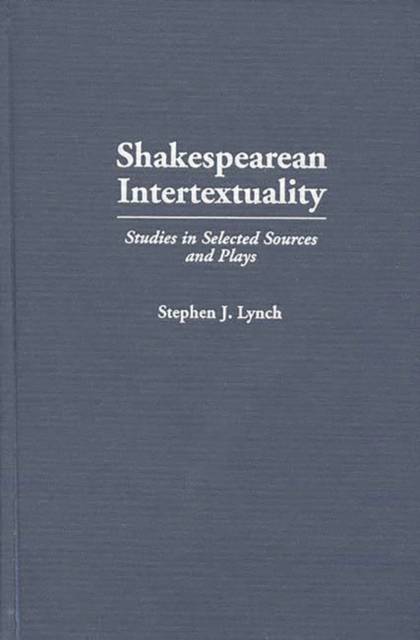
Bedankt voor het vertrouwen het afgelopen jaar! Om jou te bedanken bieden we GRATIS verzending (in België) aan op alles gedurende de hele maand januari.
- Afhalen na 1 uur in een winkel met voorraad
- In januari gratis thuislevering in België
- Ruim aanbod met 7 miljoen producten
Bedankt voor het vertrouwen het afgelopen jaar! Om jou te bedanken bieden we GRATIS verzending (in België) aan op alles gedurende de hele maand januari.
- Afhalen na 1 uur in een winkel met voorraad
- In januari gratis thuislevering in België
- Ruim aanbod met 7 miljoen producten
Zoeken
€ 161,45
+ 322 punten
Omschrijving
In reshaping Lodge's Rosalynde into As You Like It, Shakespeare not only undermines the Petrarchan and pastoral traditions of the romance, but also refutes the implicit gender structures upon which such Petrarchanisms are based. In refashioning The True Chronicle Historie of King Leir into the tragedy of King Lear, Shakespeare does not simply reject the explicit Christian setting and happy ending of Leir, but engages and responds to the highly Reformational and Calvinistic assumptions that shape and inform the source play. In rewriting Greene's Pandosto into The Winter's Tale, Shakespeare not only adapts the plot and characterization of the source, but consistently counters and refutes the rhetorical and linguistic structures of Greene's romance. And in Pericles, Shakespeare adapts the Appolinus story from Gower's Confessio Amantis, but also responds to suggestions in the source text about the authority of the role of the a
Specificaties
Betrokkenen
- Auteur(s):
- Uitgeverij:
Inhoud
- Aantal bladzijden:
- 136
- Taal:
- Engels
- Reeks:
Eigenschappen
- Productcode (EAN):
- 9780313307263
- Verschijningsdatum:
- 19/11/1998
- Uitvoering:
- Hardcover
- Formaat:
- Genaaid
- Afmetingen:
- 156 mm x 237 mm
- Gewicht:
- 335 g

Alleen bij Standaard Boekhandel
+ 322 punten op je klantenkaart van Standaard Boekhandel
Beoordelingen
We publiceren alleen reviews die voldoen aan de voorwaarden voor reviews. Bekijk onze voorwaarden voor reviews.









